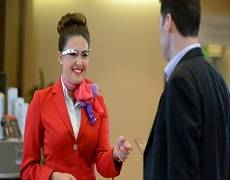March 3, 2014
World Green Building Council to quantify productivity benefits of sustainability
 In an attempt to broaden the business case for sustainable building, the World Green Building Council has launched a new initiative to define the productivity and wellbeing benefits associated with low carbon and sustainable property. The initiative, launched ahead of this week’s Ecobuild conference in London, will be steered by a group of experts who will produce a final report later in the year. The premise of the study is to show that, as well as cutting costs and improving environmental performance, green buildings have a beneficial effect on the health, wellness and productivity of occupants. According to the announcement, around 85 per cent of an average organisation’s costs are associated with salaries and other costs of employment so a modest improvement in productivity can have a huge impact.
In an attempt to broaden the business case for sustainable building, the World Green Building Council has launched a new initiative to define the productivity and wellbeing benefits associated with low carbon and sustainable property. The initiative, launched ahead of this week’s Ecobuild conference in London, will be steered by a group of experts who will produce a final report later in the year. The premise of the study is to show that, as well as cutting costs and improving environmental performance, green buildings have a beneficial effect on the health, wellness and productivity of occupants. According to the announcement, around 85 per cent of an average organisation’s costs are associated with salaries and other costs of employment so a modest improvement in productivity can have a huge impact.

























February 25, 2014
Musculoskeletal disorders rate highlights scale of ergonomic challenge
by Sara Bean • Comment, Facilities management, News, Workplace
More working days were lost last year to back, neck and muscle pain than any other cause. The latest figures from the Office of National Statistics (ONS) show that although there has been an overall downward trend in sickness absence in the UK over the last two decades; with 131 million days lost in 2013, down from 178 million days in 1993, at 30.6 million days lost, the greatest number of staff sick days in 2013 were due to musculoskeletal problems. Regulations and guidance relating to ergonomics in the workplace (the Health and Safety (Display Screen Equipment) Regulations 1992), were published over 20 years ago; and despite being amended in 2002, that’s still aeons in technology terms. The typical modern worker now routinely uses tablets, mobiles and other digital devices; whether at work, on the move or at home.
(more…)